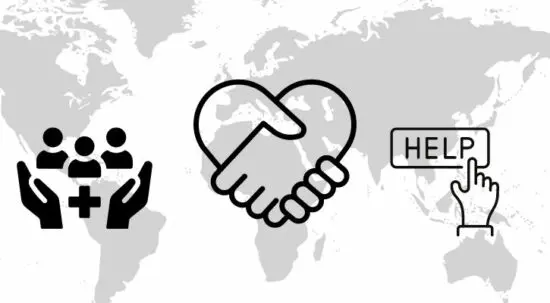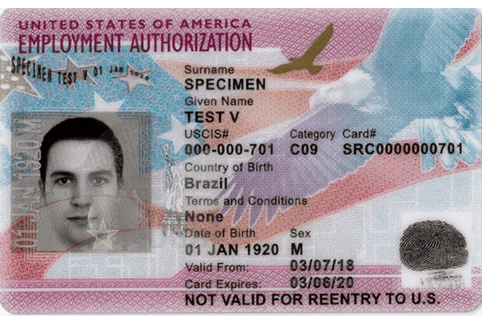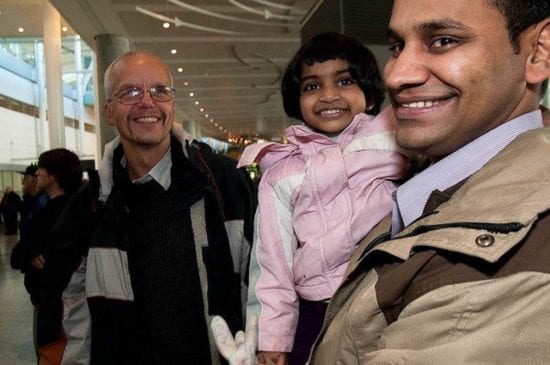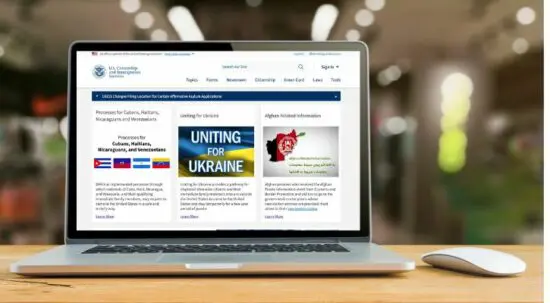Important updates for Afghan nationals
New U.S. government rules affecting Afghan nationals took effect in November 2025. The updates below explain what has happened since then.
All visa processing for Afghan passport holders is paused.
- This pause mainly affects final decisions and visa issuance.
- The National Visa Center (NVC) is continuing to collect documents and accept visa applications.
- U.S. embassies and consulates may still interview visa applicants for some visa types.
- However, at the end of the interviews, U.S. embassies and consulates have stopped issuing all visas for people who use an Afghan passport. This includes immigrant visas, non-immigrant visas, and Special Immigrant Visas (SIVs).
- If a visa was approved but not issued yet, officers must cancel it under something called “212(f)”. Even though it is cancelled, it does not change the fact that you were eligible for approval, but you may have to apply again if and when the travel ban is no longer in place. You may want to talk to an immigration attorney and consider postponing your visa interview.
Afghan Special Immigrant Visa (SIV) processing must continue, but visas are not being issued.
- On February 6, 2026, a federal court ruled that the government must continue processing Afghan SIV cases that were already submitted. The government cannot indefinitely pause review of pending SIV cases.
- Pending SIV cases should continue to be reviewed and decided.
- It does not require visas to be issued right now.
- It does not reopen travel to the United States.
- Afghans who have already received an SIV or other visa can continue to travel to the U.S. at this time.
- For the small number of Afghans who have already received an SIV and are not yet in the United States, the International Organization for Migration (IOM) is still supporting travel to the U.S. through resettlement flights. Afghans who have SIVs and need travel support can email siv_ope@iom.int.
- Once Afghan SIVs arrive in the U.S., they can still apply for and receive support from resettlement agencies. These applications may take some time to be approved.
- No new SIV applications can be submitted because the SIV program ended on December 31, 2025.
Refugee resettlement for Afghan nationals is also paused.
- The U.S. government is not processing new refugee travel for Afghans right now.
- Refugee cases that were already in process are also paused while the government creates new security rules.
- We do not know when refugee processing will restart.
Asylum decisions for all nationalities are paused.
- People can still apply for asylum, but the government is not making decisions right now.
- Do not file any new applications without talking to an immigration lawyer first.
- This pause only applies to asylum decisions from USCIS, and does not apply to asylum decisions in immigration court.
Afghanistan is a travel ban country.
- People from Afghanistan are not allowed to enter the U.S. unless they qualify for a rare exception
- You are now included in the rules for the travel ban countries. Most immigration applications are paused, and your approved status may be re-checked.
- Learn more about the travel ban and the additional rules.
What you can do now
- Talk to a qualified immigration lawyer or legal representative before taking action on your case.
- Do not travel outside the United States. If you leave the U.S., you may not be able to return. If you need to travel, talk to an immigration lawyer first.
- Do not submit new applications until you get legal guidance.
- If you get a letter or notice from USCIS or another U.S. government office, do not ignore it. Read it and talk to a legal representative.
- Be prepared for ICE. There has been an increase in ICE arrests of Afghans without permanent status nationwide and in California.
- Find help with these organizations: Afghan Coalition, Afghan Evac, Muslim for Just Futures, and Project ANAR.
- Learn more from IRAP.
We stand with you. We will continue to share updates and support you as we learn more.

It is important to seek legal advice from an immigration lawyer or accredited representative.
Understand Afghan status categories
Afghan evacuees could have humanitarian parole, a Special Immigrant Visa (SIV), asylum, or refugee status. Most Afghan evacuees will need to file additional paperwork to get legal status that allows them to stay in the USA permanently.
Humanitarian parole
If you are a humanitarian parolee not eligible for the SIV program, your status is temporary. It lasts for up to 2 years.
Note: Decisions on parole applications for Afghans are paused indefinitely. See update at the top of the page.
Parolees can not get a Green Card. You must be approved for a different status to get lawful permanent residence. The best option for Afghan parolees may be to apply for asylum.
Afghan parolees with pending applications for re-parole, asylum or other adjustment of status can still get benefits even if your current parole period ends.
If you received a notice stating your parole is ending and you must leave the U.S., it may not be correct if you entered via OAW (but could be valid if you entered via CBP One). If you are affected, talk to an immigration lawyer as soon as possible.
Re-parole process
If you have humanitarian parole through Operation Allies Welcome (OAW) you can request re-parole. These requests are considered on a case-by-case basis.
If your request was accepted, you can continue to live and work legally in the USA for an additional 2 years. You will also still be eligible for ORR services. The U.S. government may not allow people with parole to apply for re-parole a second time.
To file for re-parole, you must complete and submit a revised Form I-131. This can be done online or by mail. Form I-131 will request both a re-parole and an extension of your work authorization. No other form is needed.
Note: Decisions on re-parole applications for Afghans are paused indefinitely. See update at the top of the page.
You will have to pay a $1,000 fee unless you qualify for an exception. The U.S. government will notify you and provide instructions on how to pay this fee if you are approved for parole. Do not pay this $1,000 fee when you submit Form I-131.
Tips for requesting re-parole:
- Look at your EAD card to make sure the information matches what you put on the form. This includes the spelling of your name, date of birth, and A-number.
- Filing online can help you avoid common mistakes. If you choose to file online, you will need a myUSCIS account.
- File as soon as possible so you do not risk a gap in status and lose access to benefits and services.
- You can file for re-parole even if you have a pending application for another status, such as asylum.
- Review a list of documents to prepare, including a copy of your EAD and I-94. (List also in دری / Dari and پښتو / Pashto)
- Review these frequently asked questions
If you change your address, you must notify USCIS within 10 days, even if you are moving to a temporary location. Use the USCIS Change of Address form.
Special Immigrant Visa (SIV)
You could have applied for an SIV if you were employed by the U.S. government, a U.S. contractor, or ISAF in Afghanistan for at least one year. Once you have a Chief of Mission Approval Letter (and, if required, an approved I-360 SIV), you can apply for a Green Card with Form I-485. You may have to attend an interview at your local USCIS office. You may be asked questions related to your status.
Note: Decisions on SIV applications are paused. See the update at the top of the page. The government is also not accepting new SIV applications filed after December 31, 2025, unless Congress passes a new law to extend the deadline.
Asylum
If you were forced to leave Afghanistan to escape persecution and you do not have SIV or refugee status, you may be eligible for asylum. Applying for asylum is a long process, but it offers a pathway to legally stay in the U.S. permanently.
You typically must file your application within one year of arrival in the USA. You may be eligible to apply after one year if you apply before your parole expires. Learn how to apply for asylum.
Note: Asylum decisions for all nationalities are paused. See update at the top of the page.
If you are approved for asylum, you will be eligible for certain benefits. You can apply for your Green Card one year after your asylum case is approved. You must be physically present in the U.S. for at least one year to apply. You may have to answer questions about your status.
Refugee
If you entered the U.S. as a refugee, you can apply for your Green Card one year after arrival. Your resettlement agency can help you find legal help to complete this application.
Note: Refugee resettlement for Afghan nationals is also paused. There may be reviews of the status of Afghan refugees already in the United States. See update at the top of the page.
Temporary Protected Status (TPS)
TPS Afghanistan ended on July 21, 2025. You can no longer apply for or renew TPS Afghanistan.
Some Afghans have been detained by ICE during routine check-ins or court visits. Always carry proof of your immigration status and any pending case.
Green Card
Many Afghans, including refugees, asylees, SIVs, and their families, can apply for a Green Card after waiting a certain amount of time. A Green Card allows you to live and work in the USA permanently.
Note: Decisions on adjustment of status (Green Card) applications are paused. Green Card holders already in the United States may have their statuses reviewed again. See update at the top of the page.
Work permit
You can apply for a work permit or an Employment Authorization Document (EAD) if you have a qualifying status. This includes refugees, asylees, temporary protected status, and parole.
Note: Decisions on work permit applications for Afghans are paused. This does not apply to work permits filed as part of an initial asylum application. See update at the top of the page.
Reunite with family members
You can apply for your spouse and unmarried children under 21 to come to the USA. There is no fee to apply for Form I-730.
- Green Card holders file Form I-130
- Refugees and asylees file Form I-730
- SIV Green Card holders file Form I-824
- Parolees file DS-4317
Note: Decisions on family-based applications for Afghans are paused. See update at the top of the page.
Public benefits and ORR services
The U.S. government offers public benefits for essential services, including food, housing, healthcare, and education. You may be eligible for public benefits based on your immigration status and state rules.
Many lawful immigrants, including refugees and humanitarian parolees, may no longer get certain public benefits or may receive reduced benefits – even if they used to qualify. In particular, refugees who do not have Green Cards may no longer get federal food assistance. These policies will go into effect on different dates.
Office of Refugee Resettlement (ORR) services help refugees, asylees, SIV holders, and other new immigrants pay for basic needs as they settle in the United States.
Some ORR benefits and services have stopped or changed due to the Trump administration’s policies. Resettlement agencies have restarted limited services helping newly arrived refugees and Afghan SIVs.
More from USAHello
Looking for specific information?
The information on this page comes from DHS, USCIS, IRAP, CLINIC, MPI, and other trusted sources. We aim to offer easy to understand information that is updated regularly. This information is not legal advice.





